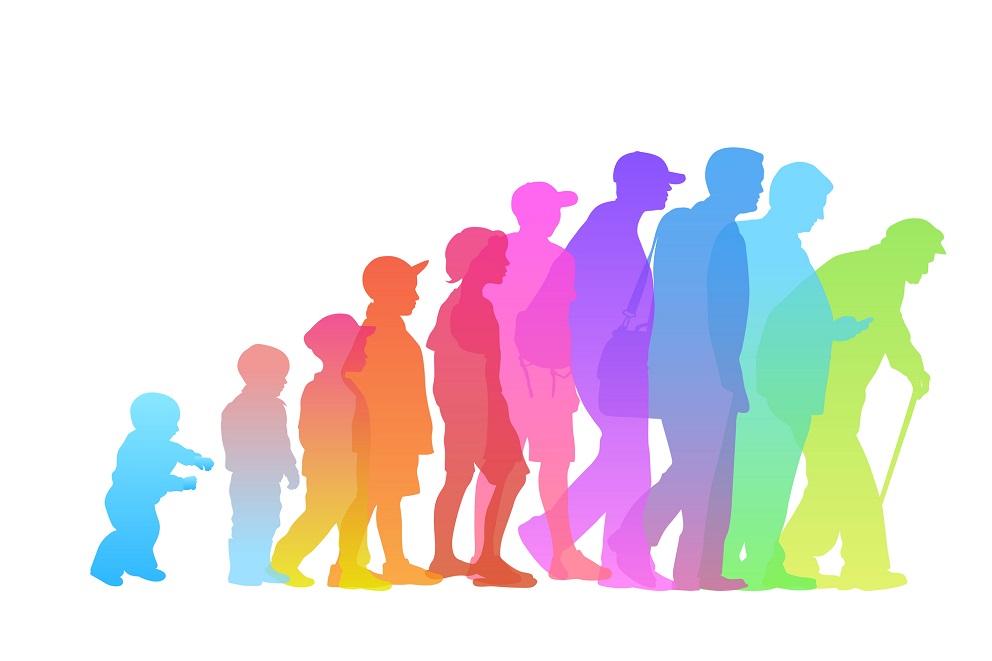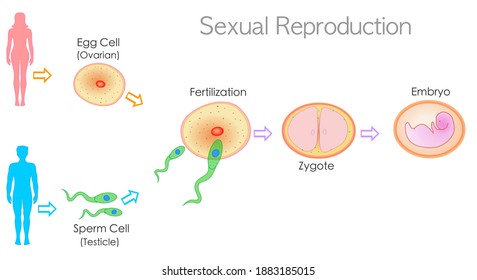【6】Developmental Psychology - Notes
⭐Developmental psychology examines our physical, cognitive, and social development across our lifespan.
- nature (genetic predisposition) v nurture (experiences)
- continuity and stages - How is development divided? Are there separate stages?
- stability and change - What traits change or persist through time?
Researchers that emphasize...
learning - "growth is continuous"
biology - "development is a series of stages and sequences"
- Some parts of us change, some don't or are hard to change
- (social attitudes, coping mechanisms) (temperament)
- Some personality traits we exhibit when we're 3 years old can persist as we get older
Women are born with all eggs they will ever have.
Men create sperm once they hit puberty and will produce more for the rest of their lives.
Zygotes enter a stage of rapid cell division and start differentiation.
- After 10 days from conception, the germinal stage is completed as the zygote attaches itself to the mother's uterine walls
- After 14 days, the zygote's inner cells -> embryos
- outer cells -> placenta (provides nutrition, oxygen, and
- filters most harmful substances)
- 2-6 weeks: embryo forms organs and heart starts to beat
- 9 weeks: embryo -> fetus
- 6 months: stomach and other organs are developed enough so that the baby could still survive even if it were to be born prematurely
- becomes responsive to sound and prefers mom's voice
- babies cry with the same intonation as their mother's language
- more responsive to words, even made up ones that they hear often during natal development
Teratogens - harmful chemicals/viruses that can reach the embryo or fetus
- (FAS) Fetal alcohol syndrome - lifelong physical and mental abnormalities from the mom's excessive alcohol intake
Epigenetic effects - labeling chemical marks on DNA that switches a gene abnormality on or off (ex. FAS, smoking)
Newborn Development
Babies will...
withdraw limbs when in pain
shake their head/swipe their face when something covers their nose
rotating reflex - touch baby's cheek -> baby will turn to that cheek & will try to suck
startle reflex - spreads limbs, clenched fists & cryinggrasping reflex - holding to others/things, helping them stay close to their caregivers
pruning - neural pathways will decay if not used
Babies show habituation when they get used to a stimulus and will weakly respond to them
Physical Development
Maturation - orderly sequence of biological growth that enables changes in behavior; relatively uninfluenced by experience.
Brain Development
- at birth, babies have the most neurons they will ever have
- 3-6 years old: frontal lobe grow the fastest in the brain
- association areas (memory, thinking, and language) are the last cortical to develop
- fivers that support agility, language, and self-control continue to increase in puberty
Motor Development
Milestones (in order)
- Rolling over
- Sitting upright unsupported
- Crawling
- Walking
- Running
The age a baby can perform these milestones varies with their genetics.
Identical twins will learn how to walk on the same day.
Infantile Amnesia - inability to recall events from before 4 years old; rapid neural growth disrupts the circuits that store old memories
Cognitive Development
Schemas - concepts/mental molds that organize and interpret info
ex. if schema is "hairy + 4 legs + tail = dog" a child might thing a tiger = dog
Assimilate - new experiences are interpreted using schemas
ex. the tiger is a dog
Accommodate - adopting our current understanding to incorporate new info
ex. not all hairy, 4-legged, tailed animal is a dog
1 - object permeance - what babies under 6 months lack; awareness that things continues to exist when they can't see/perceive the object
2 - conservation, - idea that properties mass, number, and volume stay the same despite that thing changing forms
egocentrism, - having difficulty seeing things from a different POV
theory of mind - people's ideas about their own and other's mental states; children will come to understand other people's emotions and thoughts once they develop this while maybe still being egocentric
Scaffolding - teaching method that has a framework that offers children temporary support in developing self-reliance
Zone of proximal development - zone between what children can and can't do
- kids learn best when the social mentor finds a sweet spot between too easy and too hard
Autism Spectrum Disorder - usually diagnosed during childhood; marked by significant deficiency in communication, social interactions, and rigidly fixated interests & repetitive behaviors
- 3:1 ratio of boys to girls
- rates vary btwn regions
- Potential causes
- genetics
- abnormal brain development
- prenatal environmental exposure to infections, drugs, and certain hormones
- Symptoms
- trouble developing theory of mind and inferring other's emotions
- unreconnected neural networks that integrate emotional and visual info (ex. differentiating a smile, smirk, or sneer)
Children's Social Development
~8 months: object permeance -> stranger anxiety
Attachment - emotional tie with another person
infants become distressed when separated with their caregiver whom they're close with
secure attachment - demonstrated by babies who comfortably explore around them when in the presence of their caregiver, show signs of distress when caregiver leaves, and find comfort in caregiver's returninsecure attachment - demonstrated by babies who display either a clinging, or an attachment that resists closeness; marked by anxiety or avoidance of trusting relationships
Critical period - when attachment based on familiarity is made; optimal time when exposure to certain stimuli or experiences produce normal development
Sensitive period - mere exposure to people/things makes children attached
Imprinting - the process by which certain animals from strong attachments during early life
Temperament - patterns of emotional reactions and self regulation; can be genetic and can influence parenting styles
Childhood separation anxiety peaks at ~13 months old.
Children in unstable households/have an absent parent are more likely to do worse in school, display insecure attachment throughout their life, and be worse off economically.
Self-concept - thoughts and feelings about one's self
- by ~18 months, babies can identify themselves in the mirror
Parenting Styles
- authoritarian - parents are coercive; impose rules and expects utmost obedience
- permissive - make few demands, limits, and punishments
- negligent - uninvolved; not demanding/responsive; careless, inattentive and don't seek to have a close relationship with their children
- authoritative - confrontive, both demanding and responsive; often times allow their children to have open discussions with them and allow exceptions
Cultural Differences
Western - ☆individualism in children; higher sense of self
Eastern/African - ☆collectivism; higher levels of conformity and peace
Sex - biologically influenced characteristics that define male and female. Body determines sex.
Gender - socially influenced characteristics that define male and female. Mind determines gender.
Aggression - physical/verbal behavior intended to hurt someone
- ♂ tend to be more physically aggressive
- ♀ tend to be rationally aggressive - intending to hurt other's relationship/social standing
Role - norms about social position, defining how those in the position ought to have
Gender role - set of expected behaviors, attitudes, and traits for male and female
Gender identity - our sense of being male, female, or something else
Social learning theory - social behavior's learned by imitating and observing and by being rewarded or punished
Gender typing - acquisition of traditional feminine or masculine roles
⭐Lawrence Kohlberg - moral development = levels that forms a ladder
Preconventional - before 9 yo., self interest; follows rules to just avoid punishment
Conventional - early adolescence, upholding laws/ rules to gain social order/approval
Postconventional - after adolescence, actions reflect belief rights and self-defined ethical principles
⭐Erik Erikson - each stage of life has its own psychosocial task
- Infancy - trust v mistrust
- Toddlerhood - autonomy v shame & doubt
- Preschool - initiative v guilt
- Elementary - competence v inferiority
- Adolescence - identity v role confusion
- Young Adulthood - intimacy v isolation
- Middle Adulthood - generativity v stagnation
- Late Adulthood - integrity v despair
Sex characteristics
primary - reproductive organs and external genitalia
secondary - ♂: deep voice, facial hair ♀: hips, breasts
(NCDs) Neurocognitive disorder - acquired disorders marked by cognitive deficits; related to Alzheimer's, brain injury, disease or substance abuse




Comments
Post a Comment